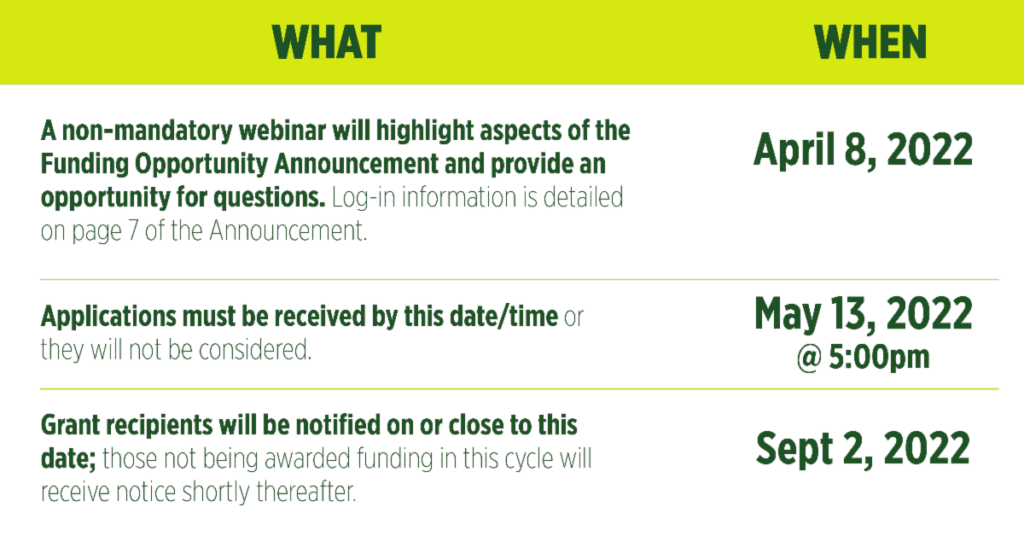Source: PA WalkWorks
Funding Opportunity
We are ever more aware that walking and bicycling are critical modes of transportation that warrant attention and funding. Walking, biking and any form of wheeling are independent, reliable, and resilient transportation modes that are healthy for our minds, bodies, finances, communities, and the environment.
WalkWorks is pleased to announce its sixth round of assistance to advance policy development related to active transportation. Once, again, grants will be offered to a limited number of municipalities and other governmental bodies to assist with the development of Active Transportation Plans, Complete Streets Policies, and/or Vision Zero Policies. These plans and policies are essential to our efforts to establish activity-friendly routes that connect people to everyday destinations, thereby expanding opportunities for physical activity.
In the context of this Funding Opportunity, active transportation includes walking, wheeling, and public transit. Eligible applicants include municipalities, Metropolitan and Rural Planning Organizations (MPOs/RPOs), and other governmental entities, like Counties, with the capacity to complete the proposed project and adopt the resulting plans and policies.
Important Dates
In response to community feedback, WalkWorks has made a concerted effort to disseminate the Announcement so that those applying will have more time to assemble their applications and those selected to receive grants will have a full year during which to develop their plans and policies. As detailed throughout the Funding Opportunity Announcement, which includes the application (Appendix E), the following are some pertinent dates:

What’s Next?
Would developing an Active Transportation Plan, Complete Streets Policy, or Vision Zero Policy make sense for your community? Please encourage your municipality (or county or MPO/RPO) to apply. If you aren’t already, start talking to local elected officials or the decision-making body of your community about the potential and rationale for taking part. The application must be submitted by a body that will be able to adopt the plans and policies, but non-governmental organizations and individuals are encouraged to support and assist their communities with applying as well as being very engaged in the process of developing plans and policies. The support of decision-makers is a necessary but not sufficient step in the process. Community partners can both help to make the case for taking on the project and augment the effectiveness of the community engagement portion of the work.